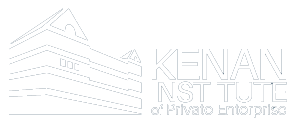Home | Publications | Leading, Managing and Communicating in an Era of Certain Uncertaintys
The COVID-19 pandemic and the nationwide civil unrest spawned by the recent spate of senseless killings of unarmed African Americans have illuminated what executive development professionals have been telling private and public sector leaders and managers for quite some time. We are living in an era of increasing volatility, uncertainty, complexity and ambiguity—a VUCA World. “Certain-uncertainty” is the new normal in today’s society and economy.
These two extremely traumatic and disruptive events are the latest of a host of disruptive forces that have dramatically transformed our environment, economy and personal wellbeing. The tragic events of 9/11, the Great Recession of 2008-2010, Hurricane Katrina and the Gulf Coast oil disaster are noteworthy past examples.
Now we are experiencing a second–and more ominous–spike in coronavirus infections and deaths as some communities allowed businesses to reopen too soon and large numbers of people ignored—and continue to do so–social distancing and mask wearing mandates. Such decisions are doing even more harm to vulnerable populations and communities already disproportionately affected by the pandemic. Not to mention the challenges they pose for both K-12 and higher education leaders trying figure out the best strategy for reopening schools this fall.
Making matters worse, we are now in the midst of the Atlantic hurricane season, which reportedly will be more active than normal. Meteorologists predict the 2020 hurricane season, which stretches from June 1 until November 30, will be the second-most active in four decades, and estimate 24 names storms, including 12 total hurricanes and five major hurricanes. As we know from the two storms that have already materialized, communities that have not rebounded from earlier adverse weather events and are now battling the coronavirus pandemic and experiencing civil unrest have already suffered or could potentially suffer yet another major disruption, making, in the process, our crisis response challenges even more daunting.
In addition, there are other potential disruptors including the steady rise in hate crimes, violent inequity in the application of law enforcement in some communities, acts of domestic terrorism, trade wars that affect global supply chains, and the political uncertainty surrounding the voting process and outcomes of the 2020 elections. Add to that the potential long-term effects of the pandemic-induced financial, employment and food insecurity crises.
To create a viable and sustainable future, public and private sector leaders must demonstrate competencies and capabilities in seven domains.
- Analytical reasoning and the ability to leverage big data analytics and GIS mapping in strategy development, especially in all phases of crisis management (mitigation, preparedness, response and recovery). Using these tools is the best way to unpack complexity, highlighting in the process an understanding of the nature and underlying causes of disparities that exist in communities. It is critically important that there are no inherent racial, ethnic or gender biases in the analytical tools used to drive strategy, especially given, for example, the racial and ethnic disparities in coronavirus infections, deaths, policing of social distancing, and testing.
- An entrepreneurial mindset—a demonstrated ability and willingness to deal with ambiguity, take incalculable risks, and manifest tenacity and decisiveness in responding sensitively, nimbly, and quickly to unanticipated crises and opportunities that arise. In times of crises, people look to leaders who are decisive and transparent with regard to the information that shaped their actions. For the entrepreneurial leader, the proverbial glass is always half full even when it is half-empty. Entrepreneurial leaders do not shy away from uncertainty. They groove on ambiguity.
- Contextual intelligence—an acute sensitivity to the social, political, technological, economic and demographic drivers of change that will likely define the future. Effective leaders master context. Ineffective leaders surrender to context. Leaders who master contextual intelligence are able to see around the corner well before they approach it. To use a hockey analogy, they skate not to where the puck is but, rather, to where the puck is headed.
- Cultural elasticity—the ability to change behavioral norms to align with ever changing situational contexts and environmental milieus in an increasingly diverse and VUCA world—also known as the ability to codeswitch. Leaders with codeswitching acumen are able to interface successfully with diversity in terms of not only race/ethnicity, gender, and international origin. They also are able to deal effectively with diversity of thought. They possess impeccable soft skills—those intangible traits, attributes, and abilities that pertain to personality, attitude and behavior rather than formal or technical knowledge—that heighten the likelihood that the right people are in the right place at the right time to respond to unpredictable and unbridled change. Popularly stated, they are able to move from the “streets to the suites” without missing a beat.
- Knowledge networks—diverse connections that span the political and ideological spectrum are the key to effective leadership in an era of “certain uncertainty.” Effective leaders welcome unwelcome ideas, recognizing, in the process, what they don’t want to hear is probably exactly what they need to hear to ensure sound strategy development.
- Effective Listening and Communications. Weathering “certain-uncertainty” requires a growth mindset—moving beyond expertise acquired through formal education.
These are teachable skills. To ensure effective responses to the COVID-19 pandemic, the ongoing civil unrest, and future crises we are almost sure to face, it behooves for-profit, nonprofit, and government leaders to take proactive steps to acquire these skills. The future health, viability and attractiveness of our nation as a place to live and do business hinges on leadership that is equipped with this portfolio of competencies.
James H. Johnson, Jr. is the William Rand Kenan, Jr. Distinguished Professor of Strategy and Entrepreneurship and Jeanne Milliken Bonds is a Professor of Practice at UNC Kenan-Flagler Business School. Bonds also is a former mayor in North Carolina
Related Articles
Germinating New Healthy Cross-Sector Collaborations
WCH In the News Germinating New Health Cross-Sector Collaborations Original article courtesy of Build Healthy Places Networkby Jacob KraybillApril 13, 2017 As part of the Healthy Communities Initiative blog series, we highlight the role of regional Federal...
Demographically Targeted Approaches to Community Economic Development in North Carolina
Demographically Targeted Approaches to Community Economic Development in North Carolina This Kenan Institute insight explores two major challenges in North Carolina's rapid growth during the first 15 months of the pandemic.Report by James H. Johnson Jr., Ph.D, Jeanne...
North Carolina’s Community Health Worker Initiative
Community Health Workers support frontline public health professionals during times of public health pandemics by providing communities with trusted messengers that are a support system and liaison to medical and social services. North Carolina deployed Community Health Workers during the COVID-19 pandemic using funding under the Patient Protection and Affordable Care Act with success. We offer recommendations for a more robust program going forward using what was learned during the pandemic.








